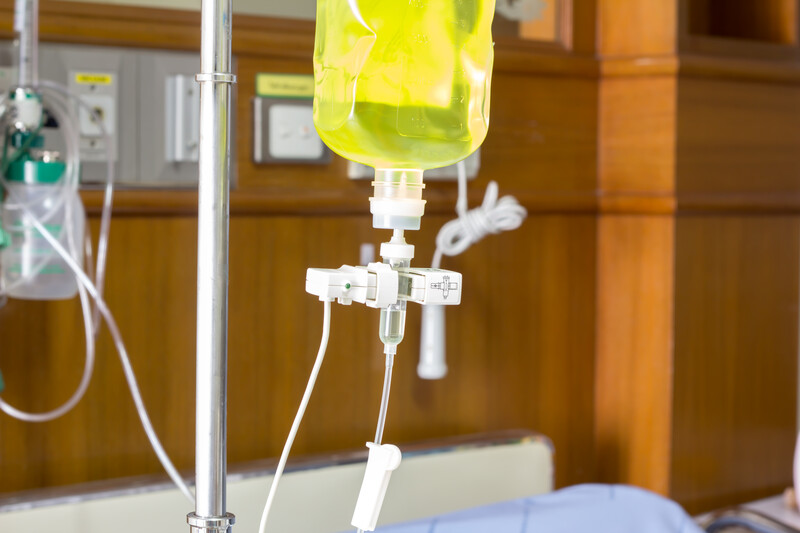Intravenous vitamin C can be considered beneficial in many individuals who lack the necessary nutrients to prevent disease and stay healthy and vibrant. Whether a patient is simply struggling with short term hydration issues or facing a long chronic disease, IV therapies, such as vitamin C may help. Our custom Intravenous treatments are designed to stimulate the immune system, reduce inflammation, assist in cellular healing and detoxify the body of unwanted pollutants.
Much of the research surrounding Intravenous vitamin C regards cancer, sepsis and severe respiratory distress. In our article High Dose Intravenous Vitamin C in Supportive Cancer Care we demonstrate current research on Intravenous Vitamin C and cancer care. Below we will highlight some of the more current research on other disorders.
Our use of Intravenous vitamin C surrounds secondary immune support for heart health, including high blood pressure, depressed immune system, chronic fatigue/fibromyalgia, Lyme disease, heavy metal overload, asthma, among other conditions.
Realistic expectation of intravenous vitamin C treatment in severe respiratory distress.
The secondary support nature of Intravenous vitamin C, as opposed to primary treatment, is explained in a February 2021 study which reports (1) “Vitamin C is a well-known antioxidant and essential cofactor for numerous biological reactions. Several studies reported that vitamin C can improve the symptoms and prognosis of patients with sepsis and respiratory infection. (This study) aimed to examine the effect of vitamin C when used in viral pneumonia patients with severe respiratory failure. In this study adjunctive intravenous vitamin C therapy alone was not associated with improvement of the 28-day mortality and prognosis in patients with severe viral pneumonia with respiratory failure.”
Vitamin C before surgery helps reduce opioid use
An October 2020 study (2) found that patients offered intravenous vitamin C before a surgery “showed significant reductions in pain score and opioid requirement up to postoperative 24 hours, respectively, suggesting the effectiveness of perioperative vitamin C use.”
Vitamin C and heart health in atherosclerotic coronary artery disease after stents
A July 2020 suggested (3) “Percutaneous coronary intervention (angioplasty with stent) is the preferred treatment for acute coronary syndrome secondary to atherosclerotic coronary artery disease. This nonsurgical procedure is also used for selective patients with stable angina. Although the procedure is essential for restoring blood flow, reperfusion (restoring) can increase oxidative stress as a side effect. Vitamin C administration reduced cardiac injury along with increased antioxidant reservoir, reduced reactive oxygen species (ROS) and decreased inflammatory markers.”
Our center also specializes in chelation therapy, a safe, effective, and relatively inexpensive intravenous treatment that may restore healthy blood flow and improve circulation without the need for surgery or other invasive procedures and is also used for the removal of heavy metals such as lead, cadmium, mercury and arsenic.
Mental Stress in overweight men
A June 2020 study (4) wrote: “Mental stress is related to endothelial dysfunction in overweight/obese men. It is believed that the pro-oxidant profile, associated with an imbalance in the vascular remodeling process, may contribute to deleterious effects of mental stress on endothelial function. (Administration of) ascorbic acid appears to minimize the oxidative imbalance and vascular remodeling induced by mental stress.
Allergy
A September 2018 study (5) wrote of the benefits of intravenous vitamin C on allergy relief. “Oxidative stress appears to be a key factor in the pathogenesis of allergic diseases and a potential therapeutic target in allergy treatment. Allergic diseases are reportedly associated with reduced plasma levels of ascorbate (vitamin C), which is a key physiological antioxidant. Ascorbate prevents excessive inflammation without reducing the defensive capacity of the immune system. (This study’s) observations suggest that treatment with intravenous high-dose vitamin C reduces allergy-related symptoms.”
For more than 30 years, the Magaziner Center has been at the forefront of providing innovative intravenous IV nutrients to thousands of patients. We have found that many individuals lack the necessary nutrients to prevent disease and stay healthy and vibrant. Whether a patient is simply struggling with short term hydration issues or facing a long chronic disease, IV therapies can help.
References
1 Lee SI, Lim CM, Koh Y, Huh JW, Lee JS, Hong SB. The effectiveness of vitamin C for patients with severe viral pneumonia in respiratory failure. Journal of Thoracic Disease. 2021 Feb;13(2):632.
2 Hung KC, Lin YT, Chen KH, Wang LK, Chen JY, Chang YJ, Wu SC, Chiang MH, Sun CK. The effect of perioperative vitamin c on postoperative analgesic consumption: A meta-analysis of randomized controlled trials. Nutrients. 2020 Oct;12(10):3109.
3 Khan SA, Bhattacharjee S, Ghani MO, Walden R, Chen QM. Vitamin C for Cardiac Protection during Percutaneous Coronary Intervention: A Systematic Review of Randomized Controlled Trials. Nutrients. 2020 Aug;12(8):2199.
4 Batista GM, Rocha HN, Storch AS, Garcia VP, Teixeira GF, Mentzinger J, Gomes EA, Velasco LL, Nobrega AC, Rocha NG. Ascorbic acid inhibits vascular remodeling induced by mental stress in overweight/obese men. Life sciences. 2020 Jun 1;250:117554.
5 Vollbracht C, Raithel M, Krick B, Kraft K, Hagel AF. Intravenous vitamin C in the treatment of allergies: an interim subgroup analysis of a long-term observational study. Journal of International Medical Research. 2018 Sep;46(9):3640-55.





































Recent Comments